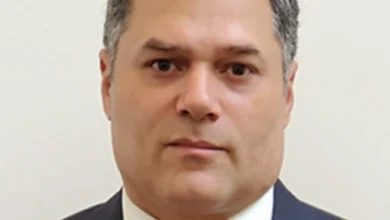Medical Law Experts: Healthcare Attorneys in the USA
Healthcare attorneys protect medical practices with expert legal counsel on malpractice, HIPAA, compliance & licensing. defense from medical law.

Medical law experts play a pivotal role in navigating the complex legal landscape of the U.S. healthcare system. As specialized healthcare attorneys, they provide critical guidance on regulatory compliance, malpractice defense, patient privacy laws, and insurance disputes. With healthcare regulations constantly evolving, their expertise ensures that medical professionals and institutions operate within legal boundaries while minimizing risks. Whether dealing with HIPAA violations, fraud allegations, or contract negotiations, these legal professionals serve as indispensable advisors in an industry where legal missteps can have severe consequences.
The demand for medical law experts continues to grow as healthcare becomes more regulated and litigious. Hospitals, private practices, insurers, and even patients rely on healthcare attorneys to interpret laws, resolve disputes, and protect their rights. From defending against malpractice claims to ensuring compliance with Medicare and Medicaid regulations, these attorneys combine legal knowledge with an understanding of medical practices. Their role is not just reactive helping clients navigate lawsuits but also proactive, advising on policies that prevent legal issues before they arise. In an era of increasing scrutiny on healthcare providers, having a skilled healthcare attorney is no longer optional but a necessity for long-term success.
Medical Law Experts
The Role of Medical Law Experts
Healthcare attorneys specialize in laws and regulations that govern medical practice. They advise clients on compliance with federal statutes such as the Affordable Care Act (ACA), HIPAA, and Stark Law. Their expertise extends to contract negotiations, risk management, and litigation support. Hospitals and private practices often rely on medical law experts to draft policies that align with legal standards, reducing the risk of penalties or lawsuits. Additionally, these attorneys represent clients in disputes involving medical malpractice, insurance denials, and patient confidentiality breaches. They work closely with healthcare professionals to ensure that their practices adhere to ethical and legal guidelines.
Key Areas of Practice for Healthcare Attorneys
Regulatory Compliance and Fraud Prevention
Healthcare providers must comply with numerous regulations to avoid fraud and abuse allegations. Medical law experts help institutions implement compliance programs that meet CMS (Centers for Medicare & Medicaid Services) guidelines. They also defend against accusations of False Claims Act violations or kickback schemes, which can result in hefty fines or criminal charges.
HIPAA and Patient Privacy Laws
Patient confidentiality is a cornerstone of healthcare law. Healthcare attorneys ensure that organizations follow HIPAA regulations to protect sensitive medical information. They assist in drafting privacy policies, conducting audits, and responding to data breaches. Failure to comply with HIPAA can lead to severe penalties, making legal counsel essential.
Medical Malpractice Defense
Medical malpractice cases are among the most common legal challenges in healthcare. Healthcare attorneys defend physicians, nurses, and hospitals against claims of negligence or improper treatment. They analyze Medical record, consult expert witnesses, and develop strategies to disprove allegations. Their role is critical in protecting medical professionals from unjust lawsuits that could damage their reputations and careers.
Insurance and Reimbursement Disputes
Disputes between healthcare providers and insurers are common, particularly regarding claim denials and underpayments. Medical law experts negotiate with insurance companies and file appeals when necessary. They also help providers navigate complex billing and coding requirements to maximize reimbursements while staying within legal boundaries.
Healthcare Mergers and Acquisitions
The healthcare industry frequently sees mergers, acquisitions, and partnerships. Healthcare attorneys facilitate these transactions by conducting due diligence, drafting contracts, and ensuring compliance with antitrust laws. Their involvement minimizes legal risks and ensures smooth transitions for all parties involved.
Why Healthcare Providers Need Medical Law Experts
The consequences of non-compliance in healthcare can be devastating. Fines, license revocations, and reputational damage are just a few risks providers face without proper legal guidance. Medical law experts offer proactive solutions, such as compliance training and policy reviews, to prevent legal issues before they arise. Moreover, healthcare laws are constantly evolving. Whether it’s adapting to new telemedicine laws or addressing emerging privacy concerns, healthcare attorneys provide the expertise needed to navigate these changes successfully.
Choosing the Right Healthcare Attorney
Specialization in Healthcare Law
Seek an attorney with dedicated expertise in healthcare law, not general practice. Ensure they have handled cases involving HIPAA compliance, Medicare fraud, malpractice defense, and healthcare contracts. Verify their experience matches your specific legal needs.
Industry Experience
Choose a lawyer with a proven history representing doctors, hospitals, or healthcare systems. Request case examples or client testimonials demonstrating successful outcomes in regulatory compliance, audits, or litigation. Experience with your practice size and specialty is crucial.
Knowledge of Current Regulations
Healthcare laws change frequently – your attorney must stay updated on new CMS rules, Stark Law updates, and telehealth regulations. Ask how they track legal developments and advise clients on emerging compliance risks.
Strategic Risk Management Approach
The right attorney should offer preventive guidance, not just crisis response. Look for one who develops compliance programs, staff training, and policy reviews to minimize legal exposure before issues arise.
Transparent Fee Structure
Understand their billing model – whether hourly, flat-fee, or retainer-based. Request a clear cost estimate for your specific needs and compare value versus expertise level before committing.
Communication Style
Your attorney should be responsive and able to explain complex laws in plain terms. Test their communication during consultations – if they’re overly technical or slow to respond, keep searching.
Professional Network
Check peer reviews, state bar standing, and whether they’re recognized by health law associations like AHLA. A well-connected attorney can leverage relationships with medical boards, insurers, and expert witnesses when needed.
Litigation vs. Advisory Strengths
If you need courtroom defense, prioritize trial-tested litigators. For corporate or compliance matters, seek attorneys with strong advisory and negotiation backgrounds. Some firms offer both.
Read More: Divorce & Custody Lawyers in the U.S.: Get Family Law Help Today
Conclusion
Medical law experts are indispensable allies in today’s complex healthcare environment, providing vital protection for providers and patients alike. As specialized healthcare attorneys, they bridge the gap between medical practice and legal compliance, ensuring their clients navigate an increasingly regulated industry with confidence. From defending against malpractice lawsuits to guiding institutions through HIPAA compliance and fraud investigations, these legal professionals offer both shield and compass in turbulent legal waters. Their expertise not only resolves immediate crises but helps shape policies that prevent future legal exposure.
The evolving nature of healthcare legislation guarantees that the role of medical law experts will only grow more critical in coming years. Healthcare attorneys serve as both interpreters of complex regulations and strategic partners in risk management, making them essential for any medical practice or institution. Whether advising on telemedicine laws, insurance disputes, or corporate healthcare transactions, these specialists provide the foresight and experience needed to thrive in America’s demanding healthcare landscape. For medical professionals seeking to protect their practice and patients, partnering with skilled healthcare attorneys isn’t just prudent it’s a fundamental requirement for sustainable success.
FAQs
What exactly do medical law experts do?
Medical law experts (healthcare attorneys) specialize in legal issues affecting healthcare, including malpractice defense, regulatory compliance, patient privacy laws, and insurance disputes.
When should a healthcare provider consult a medical law expert?
Providers should seek healthcare attorneys when facing lawsuits, government audits, contract negotiations, compliance issues, or when establishing new medical practices.
How can healthcare attorneys help with HIPAA violations?
They assist with breach response, compliance programs, staff training, and represent clients in OCR investigations to minimize penalties for HIPAA violations.
What’s the difference between a healthcare attorney and a regular lawyer?
Medical law experts have specialized knowledge of healthcare regulations, medical terminology, and industry-specific challenges that general practitioners lack.
Do healthcare attorneys only represent providers, or can patients hire them too?
While many represent providers, some healthcare attorneys specialize in patient-side cases like medical malpractice claims or insurance appeals.











